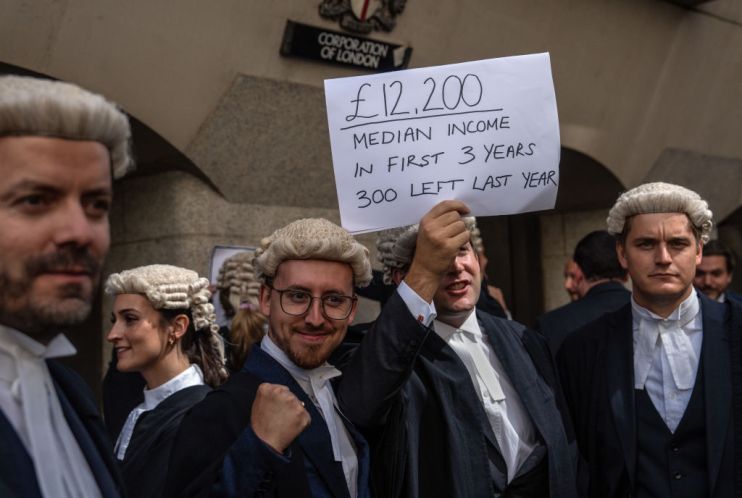UK’s new justice secretary Brandon Lewis to meet with Criminal Bar Association

The UK’s new justice secretary Brandon Lewis has agreed to meet with the Criminal Bar Association (CBA) following former justice secretary Dominic Raab’s failure to meet with the barristers’ trade body.
Lewis is set to meet CBA chair Kirsty Brimelow QC on Monday 12th September, after his predecessor failed to directly engage with striking barristers throughout the months long dispute, City A.M understands.
In a statement via Twitter, the justice secretary confirmed he will be meeting the CBA to “emphasise the need to get back to work and get justice moving again.”
In pointing to figures showing the UK’s Crown Court backlog has increased by 782 cases over the previous month, to highs of 59,992, Lewis said the statistics show “the impact of the Bar strike”.
“Hundreds more victims [are] seeing justice delayed,” Lewis added.
The news comes after the CBA’s new chair this week told a parliamentary select committee that “substantial positive movement” on the part of the government could end the barristers’ strike.
Brimelow said this could include applying the 15 per cent legal aid fee increase to all current backlogged court cases, after Raab previously offered to up fees on new cases only.
There are currently almost 60,000 cases waiting to be heard in the UK’s Crown Courts, that barristers would have to work before seeing any fee increases, under Raab’s current deal.
Commenting on news of the meeting with the new justice secretary, Brimelow said: “I look forward to meeting the Lord Chancellor and hope this introductory meeting will be followed by opening of negotiations to resolve [the strike]”.
The comments come after legal industry trade bodies, including the Law Society and the CBA, yesterday called on the justice secretary to negotiate with barristers to end the strike.
The meeting comes after a judge at Bristol Crown Court freed a defendant waiting for trial after warning delays in the system meant it would not be justified to hold the defendant in prison.
Similar rulings have reportedly been made by judges in Isleworth Crown Court and Leicester Crown Court.